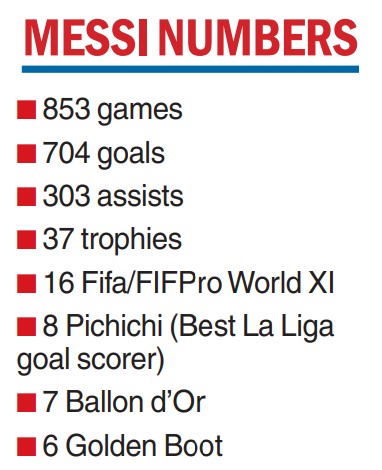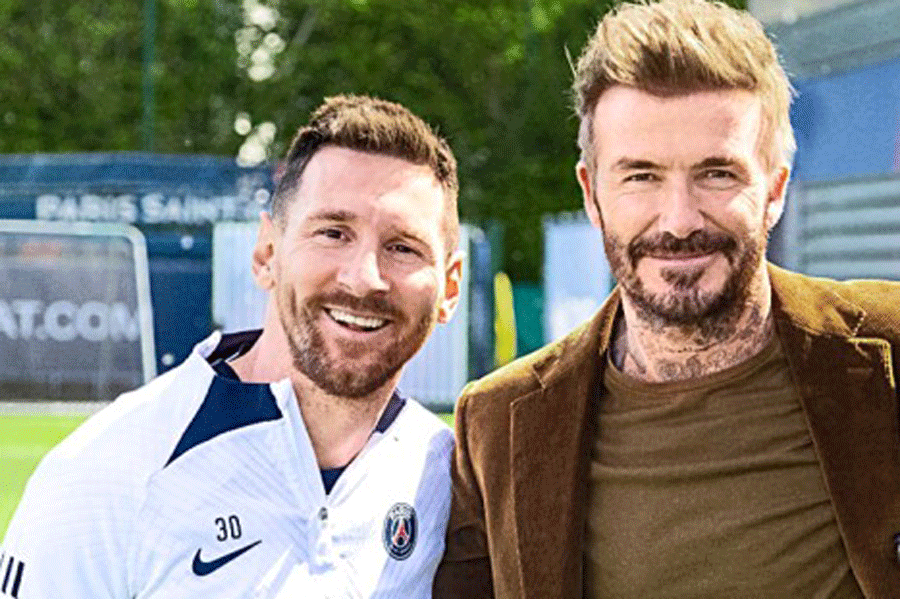In an ideal world, Lionel Messi would probably have returned to Catalonia and his beloved Barcelona. Instead, he opted for Inter Miami, as Barcelona's financial turmoil forced his hand.
The Miami franchise in the US' Major League Soccer has been led by another global football icon, David Beckham, since its inception but has yet to make any real splashes on the field.
That likely will soon change. One of Inter Miami’s owners, Jorge Mas, tweeted a photo of a darkly silhouetted Messi jersey shortly before the Argentinian great revealed his decision in interviews with Spanish news outlets Mundo Deportivo and Sport.
Messi did want to return to Barcelona but he didn't wish to be at the mercy of La Liga's accountants. He also declined an offer to play in Saudi Arabia, which pays him to promote tourism in the kingdom and is seeking to build its national league by signing international stars like Cristiano Ronaldo and Karim Benzema.
The decision was a surprise while not totally unexpected. Messi, in the interviews on Wednesday, said that some final details still need to be worked out, but he has made the call to “continue my path” in Miami, where he owns a luxury home. Basing himself there — and closer to Argentina — will make it easier for him to cultivate rich, new sponsorship opportunities in a huge commercial market.
“After winning the World Cup and not being able to return to Barcelona, it was my turn to go to the league of the United States to live football in another way,” Messi said.
He didn’t take the money. He didn’t choose the memories. He picked Miami instead. Messi’s next matches are likely to be friendlies with Argentina against Australia on June 15 at Beijing and at Indonesia in Jakarta four days later — and then his Inter Miami debut, sometime in July.
“We are pleased that Lionel Messi has stated that he intends to join Inter Miami and Major League Soccer this summer,” read a statement from MLS. “We look forward to welcoming one of the greatest soccer players of all time to our league.”
It took months of negotiations with MLS, the Miami ownership, Adidas and even Apple, which this year acquired the rights to broadcast MLS games on the service, getting involved in a creative pitch to bring Messi to Miami’s pitch.
Messi’s decision to play in the US might be the biggest boost ever for American football on the pro stage. Some of the game’s biggest names — Pele, Franz Beckenbauer, Thierry Henry and Beckham himself — have come to the US toward the end of their careers, but landing a player still no worse than near the pinnacle of his game and just a few months removed from hoisting a World Cup is huge.












